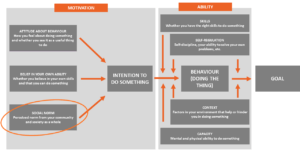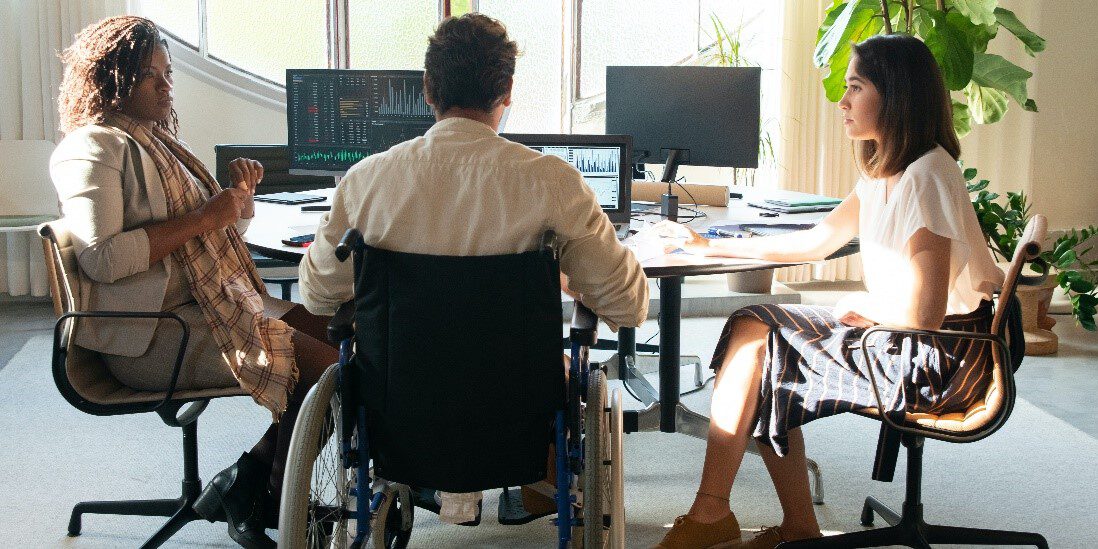By Miriam Wickham
Happy European Diversity Month! Today, the 28th of April, marks the official opening event by the European Commission of an entire month of celebrations promoting diversity and inclusion across the EU. Here at ZINZIZ we do a lot of projects facilitating the inclusion of chronically ill or disabled people at work and in society in general. To do so, we make use of the integrated behavioural model (IBM) to optimise the behaviour of disabled employees, their (potential) employers, and the professionals aiding the re-integration of people back into the workplace.
Several Identities
Importantly, chronically ill and disabled people have, just as we all do, many identities: a gender identity, an ethnic identity, an identity as a parent, a work identity, etc. We cannot ignore these identities and focus only on their disability – it would simply not do justice to the individual. Research shows that all of an individual’s identities “intersect” to form a combination of various forms of privilege and discrimination. This means that a White disabled person is not treated the same way, and does not have the same opinions and feelings, as a disabled Person of Colour (POC), for instance. But, is that something that is incorporated in the integrated behavioural model? Yes, of course!
Social Norms
There are many ways in which a person’s identities are incorporated into the integrated behavioural model, but today we will focus on one particular aspect: social norms. Social norms are the standards set by a society or group regarding what is acceptable behaviour for an individual. For example, as a society, we all have the norm that you should keep your voice down at a library. However, some social norms are different for different people, depending on their identity. For instance, mothers are typically expected to work less and spend more time with their children, while fathers are expected to be the “bread-winners”. These kinds of norms can affect a person’s motivation to find paid work, such that a father may feel more pressure than a mother, for example, and therefore would spend more time searching for job vacancies.
Besides the societal norm, your motivation can also be affected by the norms of yo ur community. For instance, some migrant communities have more tight-knit families than the average Dutch family, and their social norm is that you should take care of each other as a family, including financially. A community’s social norm can thus also affect a person’s motivation to find paid work. And social norms from your community and society on the whole also combine, making matters even more complex! Specifically, migrants often face discrimination if they are unemployed, since the narrative is that “they came to this country and are taking our benefits”. All of these complexities make it important to research how people are affected by the social norms they perceive around them, as we do at ZINZIZ.
ur community. For instance, some migrant communities have more tight-knit families than the average Dutch family, and their social norm is that you should take care of each other as a family, including financially. A community’s social norm can thus also affect a person’s motivation to find paid work. And social norms from your community and society on the whole also combine, making matters even more complex! Specifically, migrants often face discrimination if they are unemployed, since the narrative is that “they came to this country and are taking our benefits”. All of these complexities make it important to research how people are affected by the social norms they perceive around them, as we do at ZINZIZ.
Curious to know more?
Want to know how we can help your organisation realise your diversity & inclusion goals using our expertise? Make an appointment using the chat function at the bottom right of this website. Or do you want to know more about the IBM in general? Join our inspiration session (in Dutch) on June 22nd.
Meld je aan voor de inspiratiesessie Integratief Gedragsmodel (IGM)!

